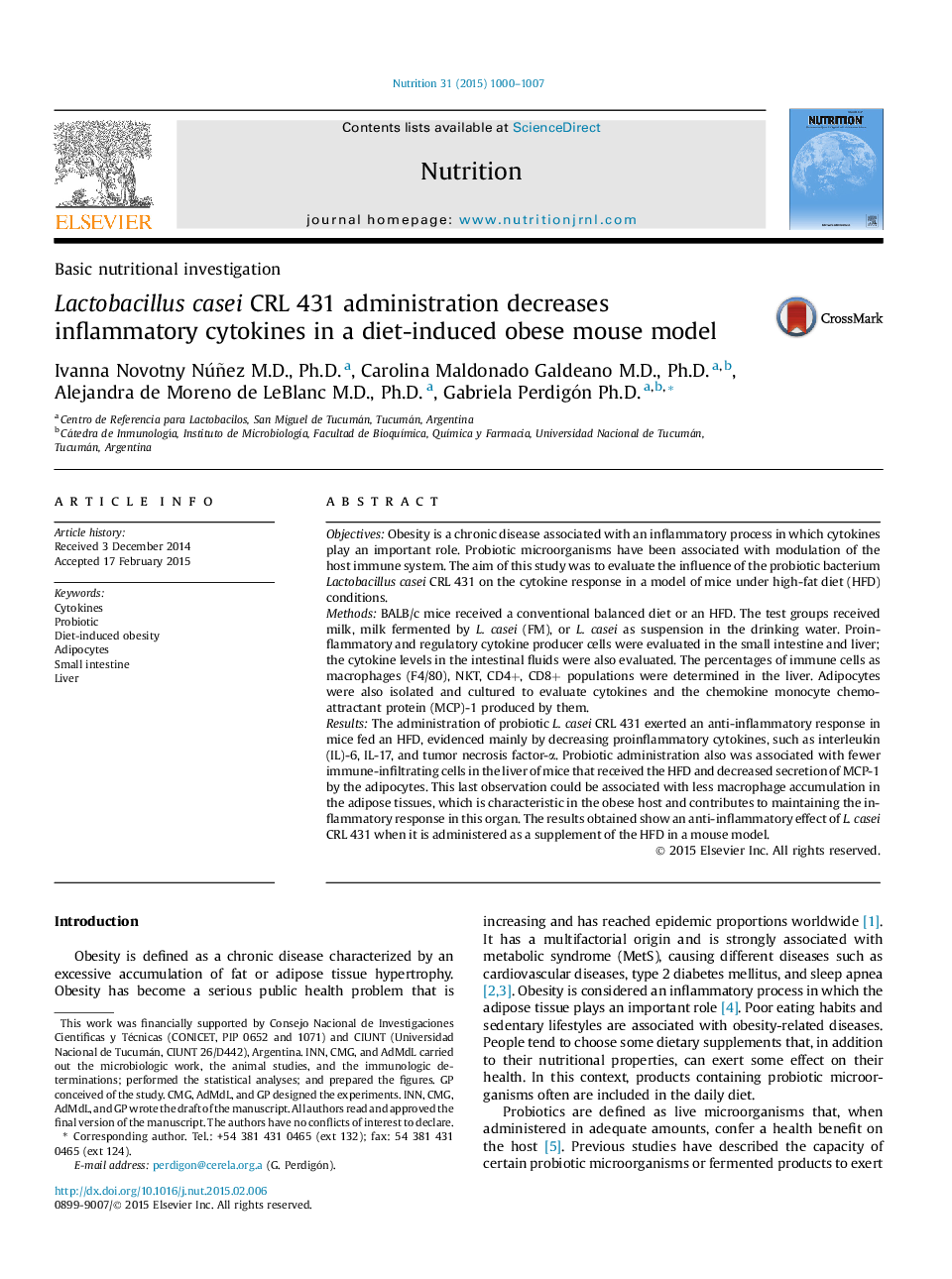| کد مقاله | کد نشریه | سال انتشار | مقاله انگلیسی | نسخه تمام متن |
|---|---|---|---|---|
| 6089305 | 1589668 | 2015 | 8 صفحه PDF | دانلود رایگان |

- The administration of the probiotic Lactobacillus casei CRL 431 to diet-induced obese mice decreased the inflammatory state in the small intestine, liver, and adipose tissues.
- Probiotic administration, especially as fermented milk was associated to decrease of proinflammatory cytokines, such as interferon-γ, tumor necrosis factor-α, interleukin (IL)-6 and IL-17 in the small intestine and liver of diet-induced obese mice.
- Probiotic administration also was related to fewer immune-infiltrating cells in the liver of diet-induced obese mice.
- L. casei CRL 431 administered as suspension and mainly as fermented milk was able to reduce the secretion of IL-6 and monocyte chemoattractant protein-1 by the adipocytes isolated from diet-induced obese mice, maintaining a regulated immune response, through the secretion of IL-10.
ObjectivesObesity is a chronic disease associated with an inflammatory process in which cytokines play an important role. Probiotic microorganisms have been associated with modulation of the host immune system. The aim of this study was to evaluate the influence of the probiotic bacterium Lactobacillus casei CRL 431 on the cytokine response in a model of mice under high-fat diet (HFD) conditions.MethodsBALB/c mice received a conventional balanced diet or an HFD. The test groups received milk, milk fermented by L. casei (FM), or L. casei as suspension in the drinking water. Proinflammatory and regulatory cytokine producer cells were evaluated in the small intestine and liver; the cytokine levels in the intestinal fluids were also evaluated. The percentages of immune cells as macrophages (F4/80), NKT, CD4+, CD8+ populations were determined in the liver. Adipocytes were also isolated and cultured to evaluate cytokines and the chemokine monocyte chemoattractant protein (MCP)-1 produced by them.ResultsThe administration of probiotic L. casei CRL 431 exerted an anti-inflammatory response in mice fed an HFD, evidenced mainly by decreasing proinflammatory cytokines, such as interleukin (IL)-6, IL-17, and tumor necrosis factor-α. Probiotic administration also was associated with fewer immune-infiltrating cells in the liver of mice that received the HFD and decreased secretion of MCP-1 by the adipocytes. This last observation could be associated with less macrophage accumulation in the adipose tissues, which is characteristic in the obese host and contributes to maintaining the inflammatory response in this organ. The results obtained show an anti-inflammatory effect of L. casei CRL 431 when it is administered as a supplement of the HFD in a mouse model.
Journal: Nutrition - Volume 31, Issues 7â8, JulyâAugust 2015, Pages 1000-1007